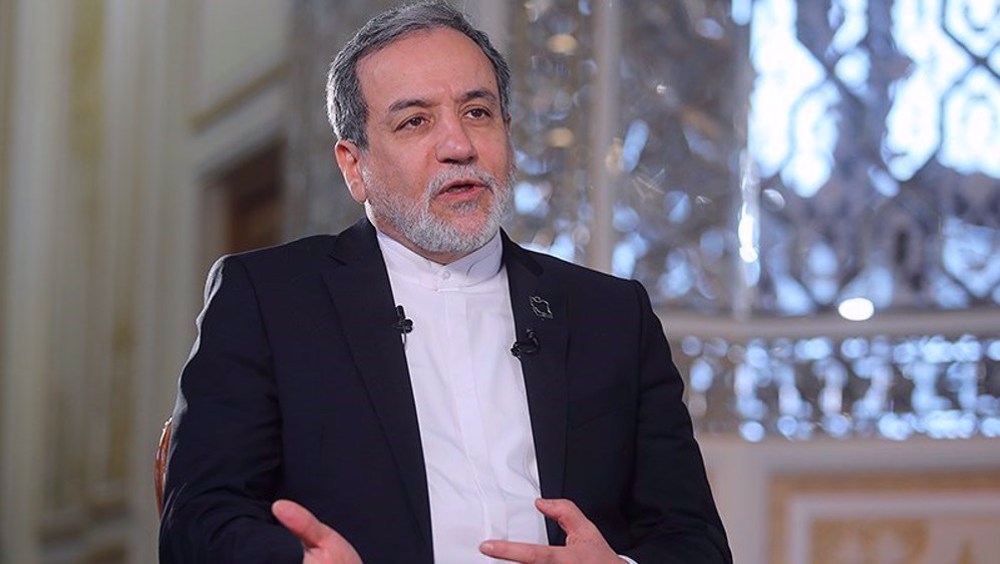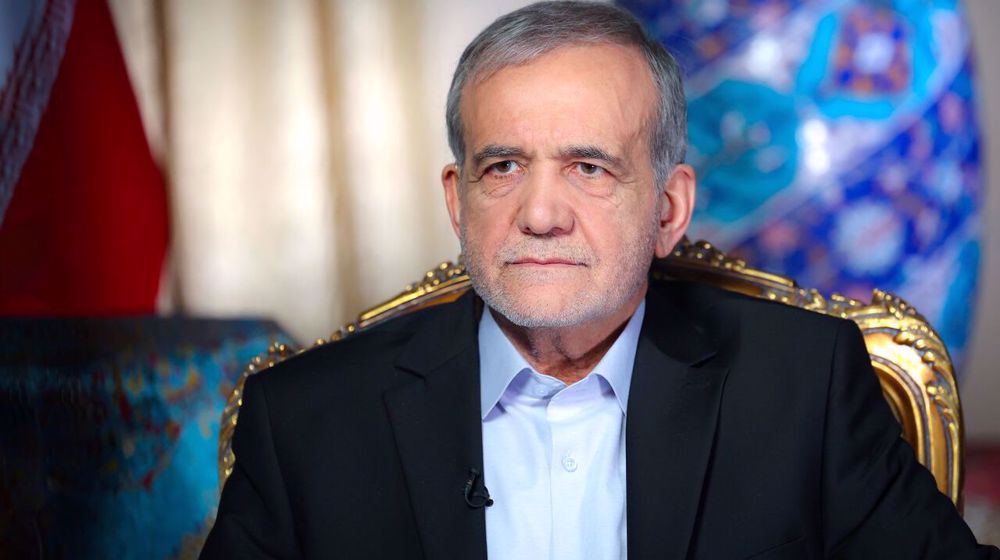Kerry writes letter of assurance to Iran after visa restrictions
The US has sought to reassure Iran that recently devised visa restrictions in the US, which affect dual national Iranians and people who have visited Iran, will not come in the way of the implementation of America’s commitments under a nuclear agreement with the Islamic Republic.
On Saturday, Washington passed a law affecting its Visa Waiver Program (VWP), which normally exempts nationals from 38 countries from having to obtain visas to visit the United States. As a result of the changes, the program no longer includes dual nationals from Iran, Iraq, Syria, and Sudan, and anyone else who has traveled to those countries in the past five years.
Iran’s Foreign Minister Mohammad Javad Zarif has reacted to the move by describing it as a “negative” signal in the wake of the conclusion of the nuclear deal, known as the Joint Comprehensive Plan of Action (JCPOA).
On Sunday, US Secretary of State John Kerry wrote a letter to Zarif, saying the visa changes “will not in any way prevent us from meeting our JCPOA commitments.”
The nuclear agreement was reached between Iran and the P5+1 group of countries – the United States, Britain, France, China, and Russia plus Germany – in the Austrian capital of Vienna on July 14.

Referring to the US’s commitments under the JCPOA, Kerry said in a reassuring tone that, “We will implement them so as not to interfere with legitimate business interests of Iran.”
“To this end, we have a number of potential tools available to us, including multiple entry ten-year business visas, programs for expediting business visas, and the waiver authority provided under the new legislation,” he explained.
Under the JCPOA, limits will be put on Iran’s nuclear activities in exchange for, among other things, the removal of all economic and financial sanctions against the Islamic Republic related to its nuclear program.
“I want to confirm to you that we remain fully committed to the sanctions lifting provided for under the JCPOA,” Kerry said, adding, “We will adhere to the full measure of our commitments, per the agreement. Our team is working hard to be prepared and as soon as we reach implementation day we will lift appropriate sanctions.”
'US under pressure'
Deputy Iranian Foreign Minister Abbas Araqchi also said the letter had come after European and P5+1 countries exercised pressure on the US over the new law. “European countries believe that this law violates the rights of European nationals,” he said, adding that 28 European ambassadors as well as the European Union’s ambassador to Washington have written a letter protesting the legislation.

Iran has also offered its political, technical, and legal arguments protesting the law, and Iranians launched various protest campaigns, the official noted. The letter by Kerry, he said, came as a result of such measures, and is a “strong guarantee” that the US move will not hinder the enforcement of its commitments.
“Based on the JCPOA, anytime that Iran senses that the agreement has been contravened by the other side, it can go to the [P5+1] joint commission, where there is a [relevant] procedure that should be followed,” Araqchi said.
In the event that the process does not produce the desired result, P5+1 foreign ministers will convene, Araqchi said, explaining that even if that meeting failed to convince Iran that such a violation had not taken place, and if the other party refused to reverse the violation, Tehran could then decide whether to end implementing its JCPOA commitments.
Such a scenario, Araqchi said, will be unlikely given the commitment made by Kerry in his Sunday letter.

Iran says US threats of military action will ‘complicate situation’ for talks

Pezeshkian: Iran seeks stronger ties with neighboring countries

Iran condemns Israel’s continued aggression against Lebanon
VIDEO | The story of Heyam: nowhere is like Gaza!
Israeli warplanes carry out more airstrikes near Damascus
VIDEO | 'War Criminal' welcomed
Denmark's PM visits Greenland after Trump threat to seize it
Pezeshkian: If Muslim nations unite, enemies cannot oppress them
Hundreds of thousands of Gazans flee as Israel ‘wipes out’ Rafah
Trump tariffs spark global condemnation as markets crash
Russia blasts Trump’s 'unacceptable' threat of bombing Iran












 This makes it easy to access the Press TV website
This makes it easy to access the Press TV website